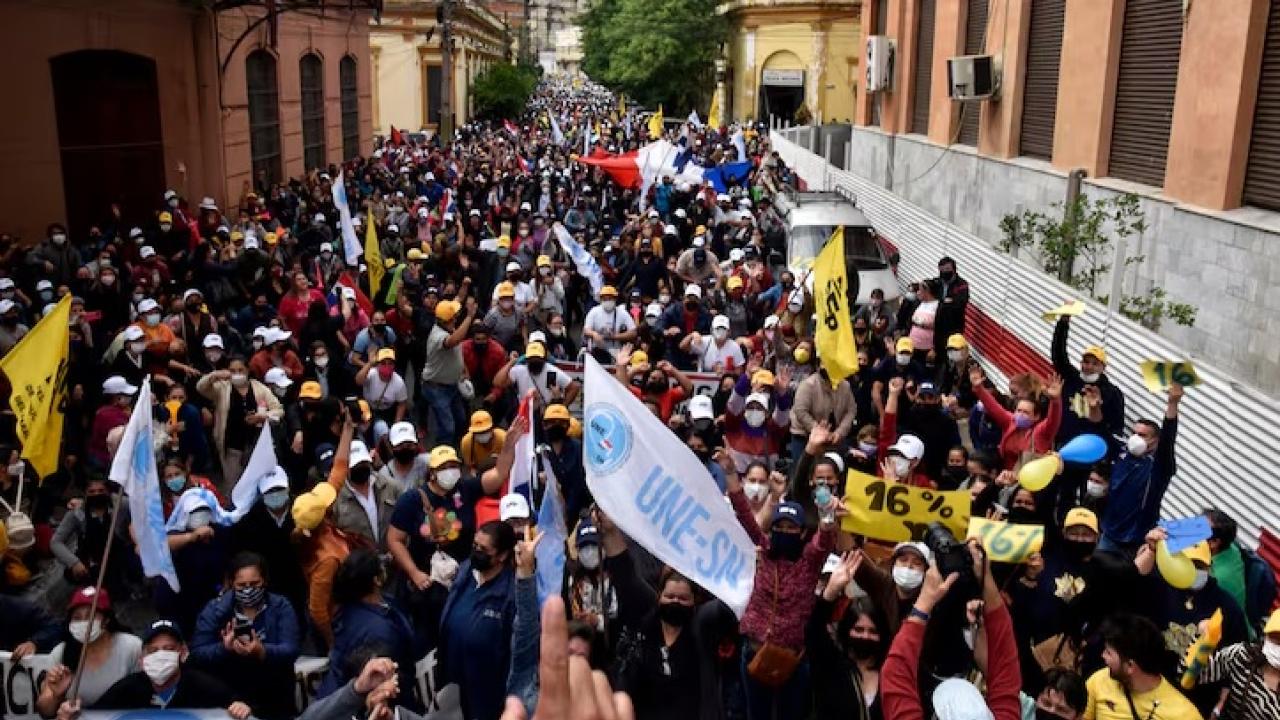
Among the findings, it is said that public spending continues to grow each year and, despite the large increase registered in collections by the National Directorate of Tax Revenue, these funds end up in budget expansions to finance current expenses.
The International Monetary Fund (IMF) recommended that the Paraguayan authorities improve public spending and reiterated the need to carry out a reform in the public sector Retirement and Pension Fund or Fiscal Fund.
In the report released after the board meeting, among others, it insists on two points to which attention has been drawn for quite some time, such as the improvement of public spending and the unsustainability of the Fiscal Fund.
The IMF board met last Wednesday, June 26, to analyze the results of the evaluation carried out on the Paraguayan economy within the framework of the Article IV Consultation.
Compliance with the commitments assumed for the implementation of the agreements was also reviewed: Policy Coordination Instrument (ICP) and the Resilience and Sustainability Service (SRS).
Regarding this latest agreement, he announced the completion of three reform measures and that this allows the country to immediately access 75.5 million of the special drawing rights (SDR), approximately US$ 100 million, of the loan of US$ 400 million requested by the government with the commitment to implement climate-related reforms.
The entity, in relation to public spending, in the report mentions that “the directors encouraged the authorities to improve the efficiency of spending, including through better targeting of social assistance programs.”
In addition, “they also highlighted the need to reform the public pension system and minimize the contingent liabilities of planned public-private partnerships,” the report adds about what was stated by the directors of the Fund.
PUBLIC EXPENDITURE IS CONCERNED
In this context, public spending continues to grow each year and despite the large increase registered in collections by the National Directorate of Tax Revenue (DNIT), these funds end up in budget expansions to finance current expenses.
As an example, in recent times there have been decrees from the Presidency authorizing modifications to finance expenses on tickets, travel expenses, rent, building repair, purchase of machinery, office furniture, computer equipment, construction, vehicles, fuel, insurance doctor, consultancies, to name a few from the long list.
The DNIT as of May, according to the entity's data, since its creation (period between August 15, 2023 and May 31, 2024) obtained an increase of the order of G. 4.4 billion (US $600 million) from internal and customs tax collections.
The budget of the central administration as of May, for its part, increased more than G. 1.9 billion (US$ 269.6 million), according to the latest data from the MEF.
TAX CASE
As of May, the public sector pension entity accumulated a deficit of more than G. 908,000 million (US$ 123.3 million at the budgeted exchange rate), which represents 42% of the difference between the income obtained from contributions and the expenses incurred with the payment of retirements and pensions.
The MEF warns that surplus resources will be exhausted in the medium term and the deficit in 2027 is estimated at 1.3% of GDP, which represents about US$506 million that the Treasury will have to fully finance, that is, taxpayers. with the payment of taxes.
Of this total amount, the deficit for the non-civilian program (police and military) is estimated at US$217 million and for the civil program (public administration, judicial magistrates, national teachers and university teachers) US$289 million.









